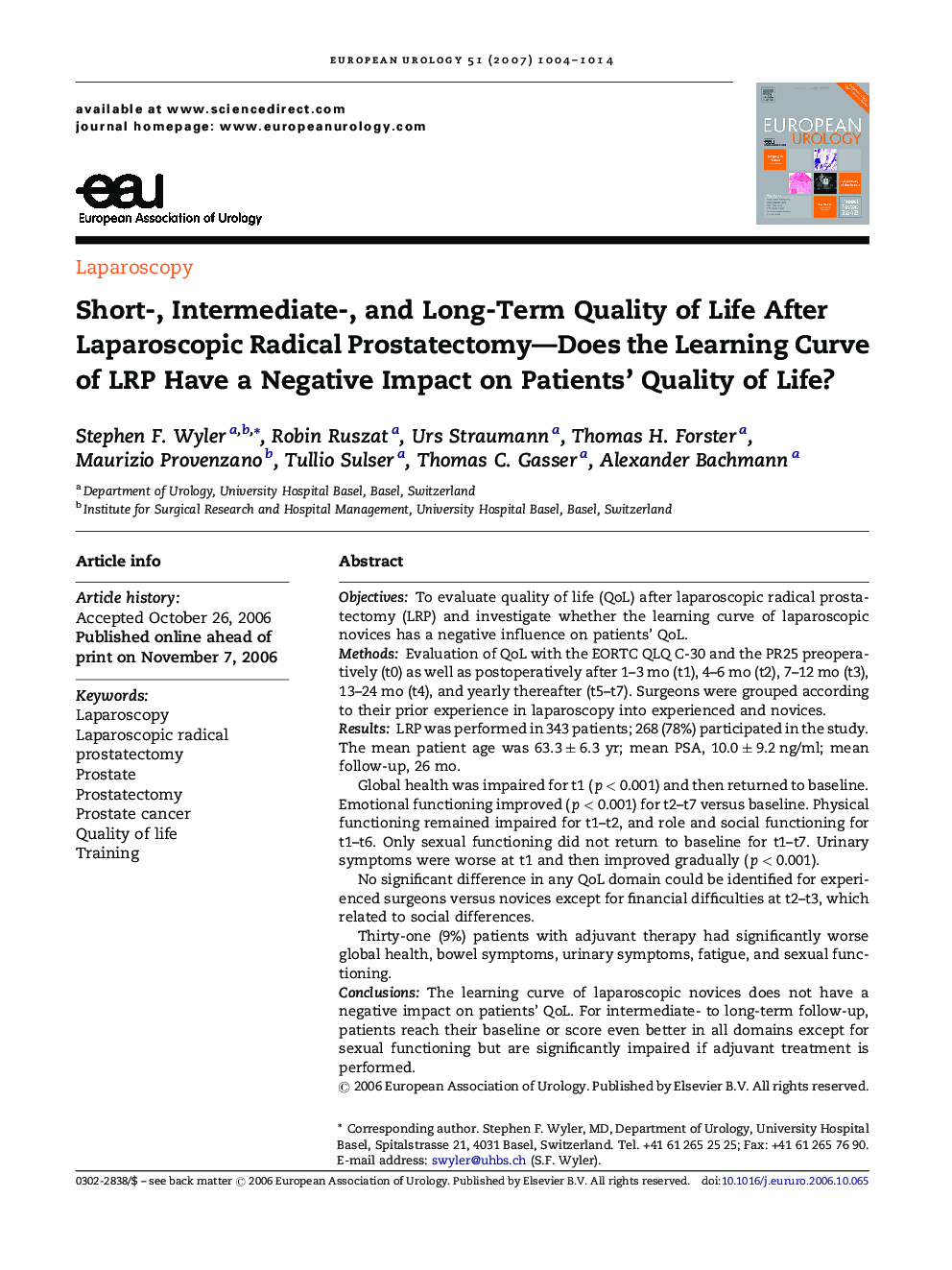| کد مقاله | کد نشریه | سال انتشار | مقاله انگلیسی | نسخه تمام متن |
|---|---|---|---|---|
| 3925565 | 1253130 | 2007 | 11 صفحه PDF | دانلود رایگان |

ObjectivesTo evaluate quality of life (QoL) after laparoscopic radical prostatectomy (LRP) and investigate whether the learning curve of laparoscopic novices has a negative influence on patients’ QoL.MethodsEvaluation of QoL with the EORTC QLQ C-30 and the PR25 preoperatively (t0) as well as postoperatively after 1–3 mo (t1), 4–6 mo (t2), 7–12 mo (t3), 13–24 mo (t4), and yearly thereafter (t5–t7). Surgeons were grouped according to their prior experience in laparoscopy into experienced and novices.ResultsLRP was performed in 343 patients; 268 (78%) participated in the study. The mean patient age was 63.3 ± 6.3 yr; mean PSA, 10.0 ± 9.2 ng/ml; mean follow-up, 26 mo.Global health was impaired for t1 (p < 0.001) and then returned to baseline. Emotional functioning improved (p < 0.001) for t2–t7 versus baseline. Physical functioning remained impaired for t1–t2, and role and social functioning for t1–t6. Only sexual functioning did not return to baseline for t1–t7. Urinary symptoms were worse at t1 and then improved gradually (p < 0.001).No significant difference in any QoL domain could be identified for experienced surgeons versus novices except for financial difficulties at t2–t3, which related to social differences.Thirty-one (9%) patients with adjuvant therapy had significantly worse global health, bowel symptoms, urinary symptoms, fatigue, and sexual functioning.ConclusionsThe learning curve of laparoscopic novices does not have a negative impact on patients’ QoL. For intermediate- to long-term follow-up, patients reach their baseline or score even better in all domains except for sexual functioning but are significantly impaired if adjuvant treatment is performed.
Journal: European Urology - Volume 51, Issue 4, April 2007, Pages 1004–1014